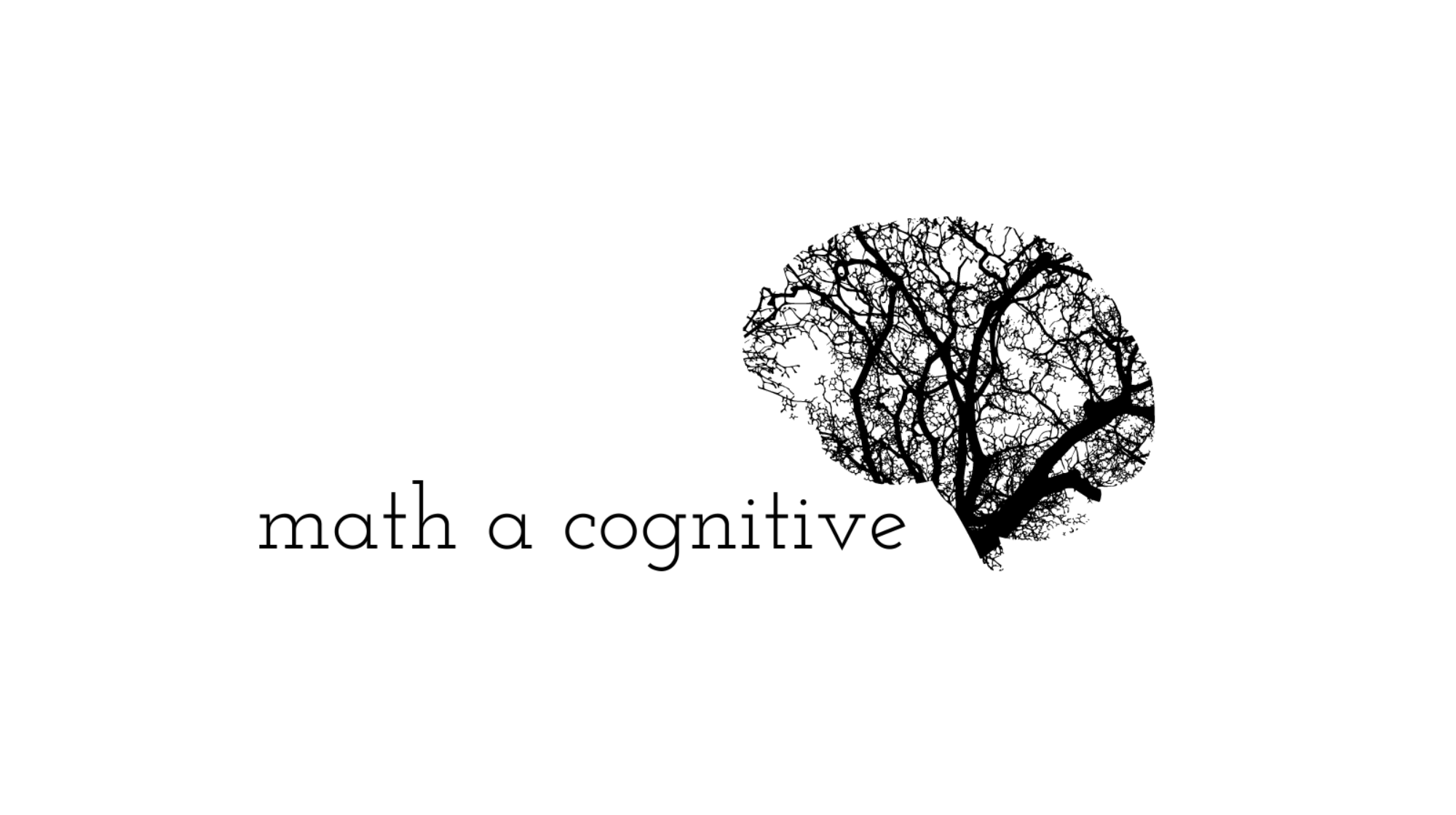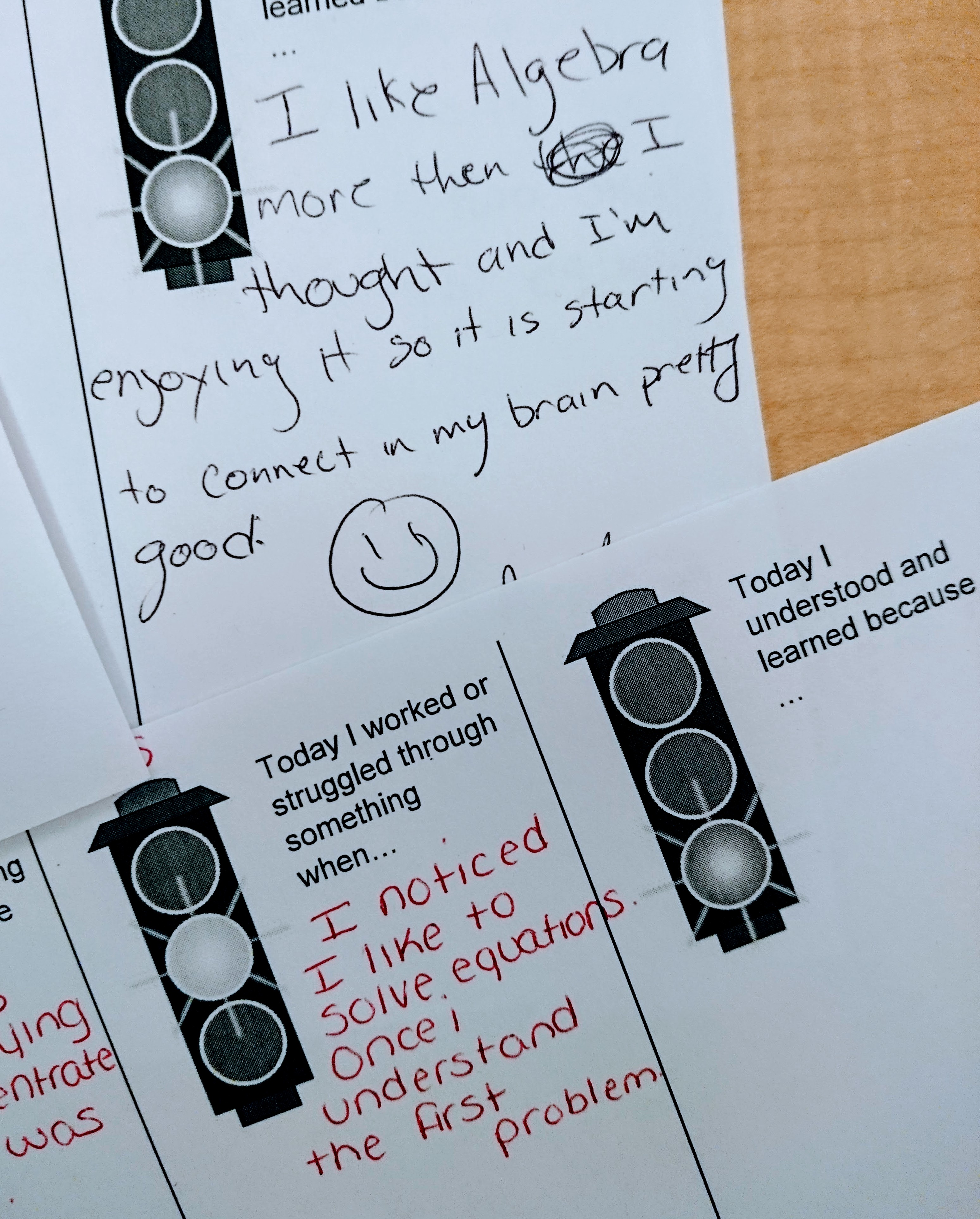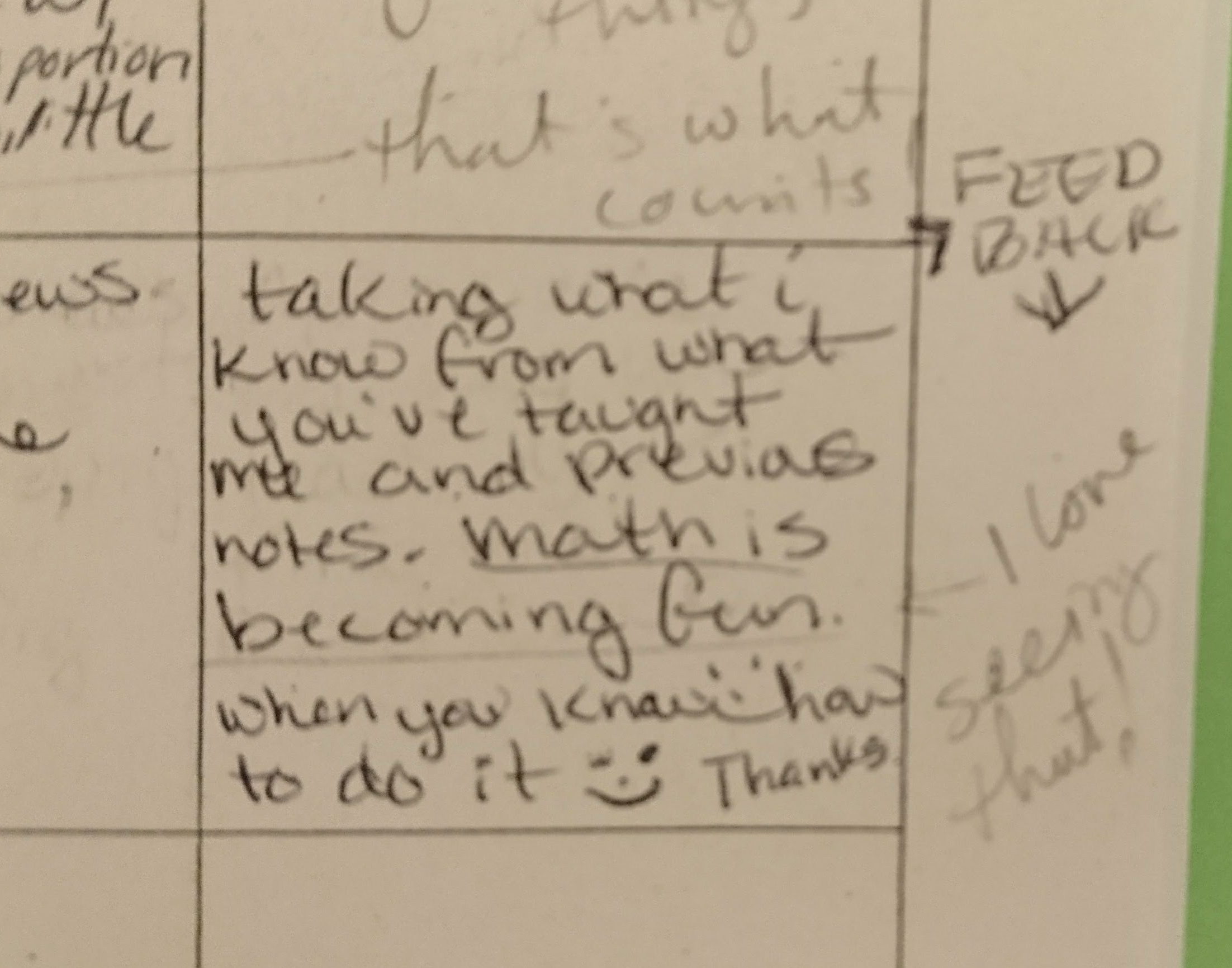I’m trying out a new end of term reflection.
You don’t know me well enough to know that this is not news.
I’ve tried a new end of term reflection approximately every other term of my teaching career. Obviously, I like the idea, but it rarely feels as reflective/meaningful/helpful as I hope.
This terms’ effort is motivated by three thoughts –
They need more scaffolding if they’re going to produce meaningful, helpful reflection
I need to pick something and stick to it (for my sake, and theirs)
It’s easier to stick to something by building on an existing habit, than creating new habits from scratch (aka habit stacking )

So, my new end of term reflection, for now and for future terms, in three steps
- Reread all of the metacognition they’ve already done.
I’ve been saving their exit tickets in a big pile on my desk (not sure what I’d need them for, but sure they would be good for something) + their homework folders and their review folders each contain a weekly comment about their progress or process.
Because, data helps.
And because it’s hard to hold a whole term in your head at once, and even harder to see yourself clearly.
- Write observations about themselves as learners this term, based on their review of the available evidence.
I’m structuring these as “I notice ____” to nudge them towards the specific, and asking for three.
- Give their future selves advice
I’m pointedly not taking these (although I’m taking a look) Instead, I’m asking students to put their advice someplace where they’ll notice it when they need it.
Here’s a copy of my end of term reflection
What I like about this plan:
It feels doable – for me and for them. 10 minutes of class time, I can do that. 3 sentence stems and some advice, they can do that.
It builds on what we’re already doing, so it feels connected. But also, I hope knowing they’ll be re-reading them and using them, nudges students to give more thought to the short metacognitive comments they were already writing.


